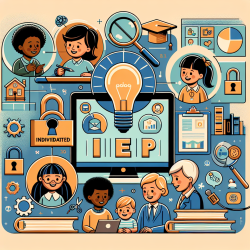The digital age has brought about significant changes in how we live and interact, but it has also introduced challenges such as Internet addiction. This phenomenon is particularly concerning among adolescents, who are increasingly reliant on digital platforms for social interaction and entertainment. A recent study titled "Testing Longitudinal Relationships between Internet Addiction and Well-Being in Hong Kong Adolescents: Cross-Lagged Analyses Based on Three Waves of Data" sheds light on the intricate relationship between Internet addiction and adolescent well-being.
The Study: A Longitudinal Approach
This comprehensive study involved 3,328 Secondary 1 students from 28 secondary schools in Hong Kong. Over three years, researchers collected data using the Internet Addiction Test (IAT), Life Satisfaction Scale, and Hopelessness Scale. The aim was to explore how Internet addiction influences life satisfaction and hopelessness over time.
Key Findings
- Internet Addiction Predicts Poor Well-Being: The study found that Internet addiction at an earlier time predicted lower life satisfaction and higher hopelessness in subsequent years. This suggests that poor personal well-being is more a consequence than a cause of Internet addictive behaviors.
- No Reciprocal Relationship: Contrary to some theories, the study did not find significant evidence that low life satisfaction or high hopelessness leads to increased Internet addiction.
- Gender and Economic Status: The research highlighted demographic factors such as gender and family economic status as influential in shaping adolescents' experiences with Internet addiction and well-being.
Implications for Practitioners
The findings have profound implications for educators, counselors, and mental health professionals working with adolescents. Here are some strategies to consider:
- Early Intervention: Identifying signs of Internet addiction early can help practitioners implement interventions before significant declines in well-being occur.
- Cognitive Behavioral Approaches: Techniques that focus on modifying maladaptive thoughts related to Internet use can be effective. Encouraging real-world social interactions may also help improve life satisfaction.
- Parental Involvement: Educating parents about the signs of Internet addiction and involving them in intervention strategies can enhance outcomes.
- Comprehensive Programs: Schools can develop programs that address both individual behaviors and broader family dynamics to mitigate the impact of Internet addiction.
The Need for Further Research
This study opens avenues for further research into the mechanisms driving the relationship between Internet addiction and well-being. Future studies could explore additional factors such as academic stress or peer influence that may moderate this relationship. More longitudinal data could also help clarify potential reciprocal effects over longer periods.
The findings underscore the importance of addressing Internet addiction not just as a standalone issue but as part of a broader strategy to enhance adolescent well-being. By understanding these dynamics, practitioners can better support young people in navigating the challenges of the digital age.
To read the original research paper, please follow this link: Testing Longitudinal Relationships between Internet Addiction and Well-Being in Hong Kong Adolescents: Cross-Lagged Analyses Based on Three Waves of Data.










